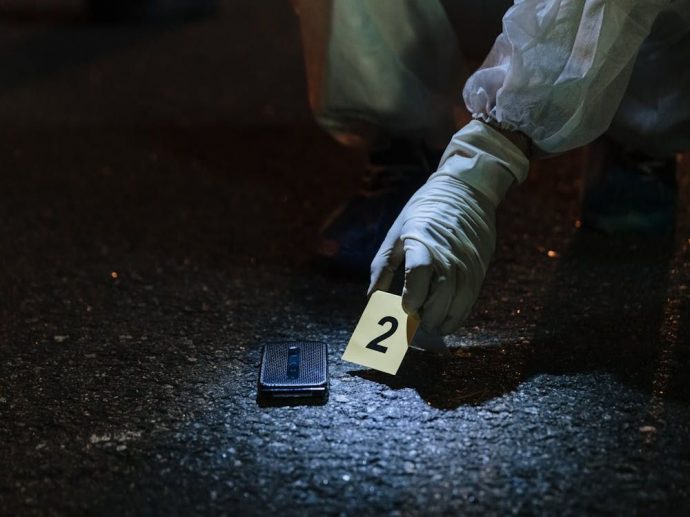Categories more
- Adventures (17)
- Arts / Collectables (15)
- Automotive (37)
- Aviation (11)
- Bath, Body, & Health (77)
- Children (6)
- Cigars / Spirits (32)
- Cuisine (16)
- Design/Architecture (22)
- Electronics (13)
- Entertainment (4)
- Event Planning (5)
- Fashion (46)
- Finance (9)
- Gifts / Misc (6)
- Home Decor (45)
- Jewelry (41)
- Pets (3)
- Philanthropy (1)
- Real Estate (16)
- Services (23)
- Sports / Golf (14)
- Vacation / Travel (60)
- Watches / Pens (15)
- Wines / Vines (24)
- Yachting / Boating (17)
The Importance of Digital Evidence in Criminal Investigations
Published
05/12/2024Digital technology's rise has transformed criminal investigations by introducing vital digital evidence such as emails, social media, GPS, and surveillance videos. This shift presents new challenges and opportunities for law enforcement and legal professionals.
The Proliferation of Electronic Devices
The rise in digital evidence is greatly connected to the growing use of electronic devices like smartphones, computers and tablets. These gadgets hold large amounts of data; from records on communication to locations visited, internet surfing history as well as stored files - all these can give helpful understandings into what suspects have been doing or planning out.
Legal Frameworks for Handling Digital Evidence
Legal frameworks and rules are responsible for determining how digital evidence is managed and accepted in criminal cases in Canada. The general principles of evidence, such as relevance, reliability and authenticity apply to digital evidence just like they do with regular forms of proof. Privacy laws along with constitutional rights also safeguard people's digital data from illegal search or confiscation by law enforcement authorities.
Challenges in Collecting and Preserving Digital Evidence
Even though digital evidence could have great importance in criminal investigations, it is not easy to gather and keep this kind of proof. Data on electronic devices might be changed, erased or interfered with. This makes it very important for investigators to use good forensic methods and instruments so as not to destroy the proof. The speed at which technology is advancing often surpasses the growth of law regulations and procedures for managing digital evidence.
Authentication and Chain of Custody
The first and crucial worry about evidence in digital form is making sure its authenticity can be trusted, along with keeping a properly identified chain of custody from when it was collected till presented in court. Authenticating refers to confirming that the digital proof is real and hasn't been changed or tampered with. It involves carefully noting down how the evidence was handled and kept, as well as following set rules for preserving its original shape.
Expert Witness Testimony
As the character of digital evidence is technical, testimony from expert witnesses - usually forensic analysts and cybersecurity experts - can become very important to make clear its importance to judges and juries. These experts might explain methods for collecting or studying digital proof, while also giving their viewpoint on the trustworthiness and usefulness of such evidence in court matters. Their witness statement could aid in narrowing down understanding between intricate technical ideas with legal processes.
Admissibility Challenges
There are situations where a criminal lawyer Mississauga could question the acceptance of digital proof, for example if there's doubt about its genuineness, importance or issues related to chain of custody. The court has to balance how much this proof can help with the case against any possible harm or unfairness towards accused people. Decisions on admitting digital evidence into court records might greatly affect criminal trial results, emphasizing the significance of complete and open handling methods.
Emerging Technologies and Future Trends
Continuing advancements in technology will alter the digital proof scenario for criminal inquiries. Progresses made in artificial intelligence, machine learning and blockchain can possibly revolutionize how we collect, examine and present digital evidence within courtrooms. But this progress can also bring up fresh legal and moral issues concerning rights of privacy, safety measures for data and whether or not to accept evidence obtained through new technologies into law courts.
Digital evidence is now a necessary part of current criminal investigations, giving important understanding about what suspects do and plan. But, dealing with digital proof and if it can be allowed as evidence in court brings difficult difficulties for law enforcement groups and people who practice law. By keeping up with changes in technology and following known legal rules and methods, lawyers as well as investigators can make good use of digital evidence to guarantee justice in criminal matters.















